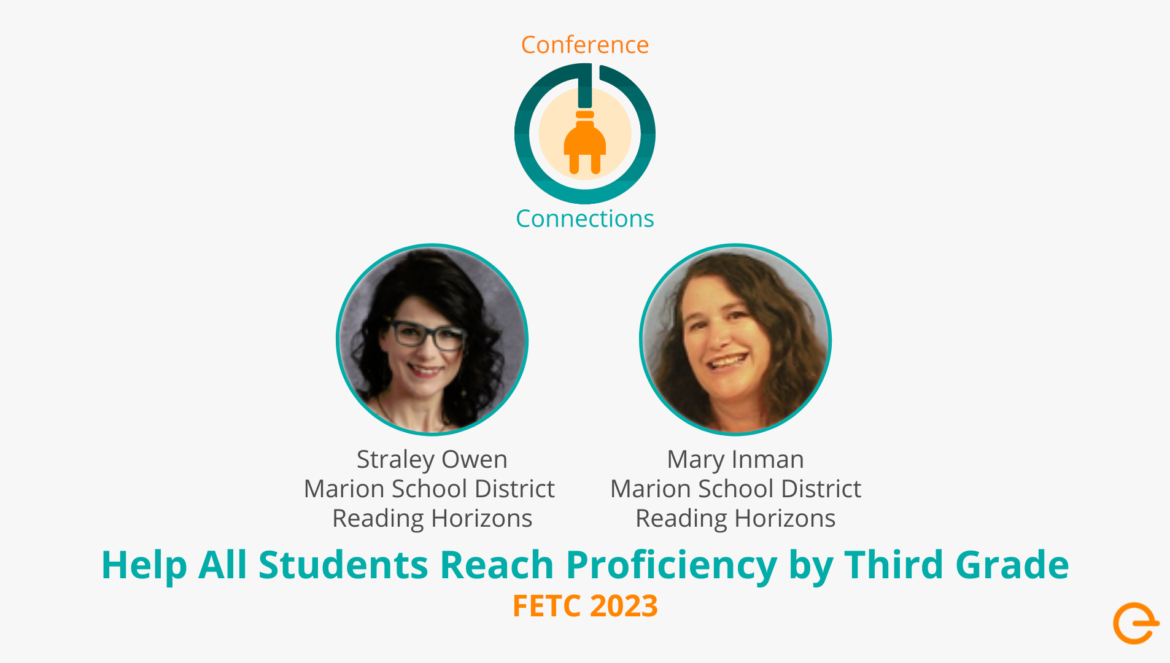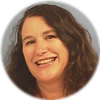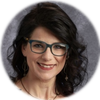Table of Contents
Reading is essential for every subject in school. From Math to Language arts, students need to be confident readers to be successful scientists, mathematicians, historians, and more. However, how do we ensure the curriculum supports their reading skills?
In this episode of Conference Connections, an interview series with K20 thought leaders, we chat with Straley Owen and Mary Inman from Reading Horizons and Marion School District. The edCircuit team caught up with Straley and Mary at FETC 2023. The topic of this discussion was student literacy, the science of reading, and professional development.
“It’s not just about being a proficient reader; it’s about being an automatic reader. And that is where in the brain, those neurons have got to be firing instantaneously. For someone who’s a naturally proficient reader, there’s no disconnect. But for many of our children, if there is a slow pathway because they have to build meaning from sounds and letters and words, it has to go through a whole process, and that slows down their ability to comprehend what they’re reading. So, we need not just proficient readers but automatic readers so that they are able to focus on those higher-level strands of comprehension.”
The Science of Reading and Student Support
At the beginning of this conversation, Straley and Mary explore the mission and pedagogy behind reading horizons.
Reading Horizons is a R.I.S.E program. Programs like Reading Horizons are powered through the Arkansas Department of Education initiative to increase the science of reading in classrooms across the state. Straley and Mary’s role is to increase literacy through professional development. The professional development provides resources and training for educators to learn best practices and recent research surrounding the science of reading to increase literacy across all levels of education.
A major focus in this half of the conversation is the importance of reading and how reading leads to better communities and success outcomes, particularly in lower socioeconomic areas. The Reading Horizons program starts in early childhood education, making sure early readers can build foundational literacy skills. However, as Straley and Mary point out, they have also implemented programs in secondary learning to ensure that students who are behind in reading have resources to catch up.
An all too familiar challenge for students who fall behind in reading skills is an increase in frustration. These SEL challenges impact their overall education confidence and academic achievement across all subjects, not just language arts. However, using the resources and training that Reading Horizons provides, they are able to ensure that more readers stay at grade level and triangulate students who are struggling in later grades to encourage their reading skills.
Collaboration for Literacy Success
In the second half of this episode, the trio explores the integration of the program, student engagement, and facilitating great literacy learning. The training for Reading Horizons is very hands-on, and they rely on teacher collaboration for the integration and success of the program. The program made sure to work directly with teachers to ensure they had the appropriate training and support they needed to successfully teach the Reading Horizons curriculum.
Similar to teacher collaboration, a program like Reading Horizons thrives on collaboration with parents and key stakeholders across the community. Engaging families to participate in Reading Horizon’s programs has been essential for reinforcing additional learning.
The conversation closes with a discussion of assessment and the importance of building a foundation for literacy. A major emphasis of their diagnostic and assessment data is to ensure that students are met where they are and that instruction builds them up. And the students who have participated in this program success show how reading can build their confidence and their foundational academic success.
How Reading Can Make a Difference
Overall, this conversation highlights the importance of reading and how professional development, training, and research-backed curriculum can make a difference is student learning.
To learn more about Reading Horizons, visit their website and follow them on Twitter, Facebook, and LinkedIn.
For more episodes on Conference Connections, visit edCircuit.
Learn more about the participants below.



